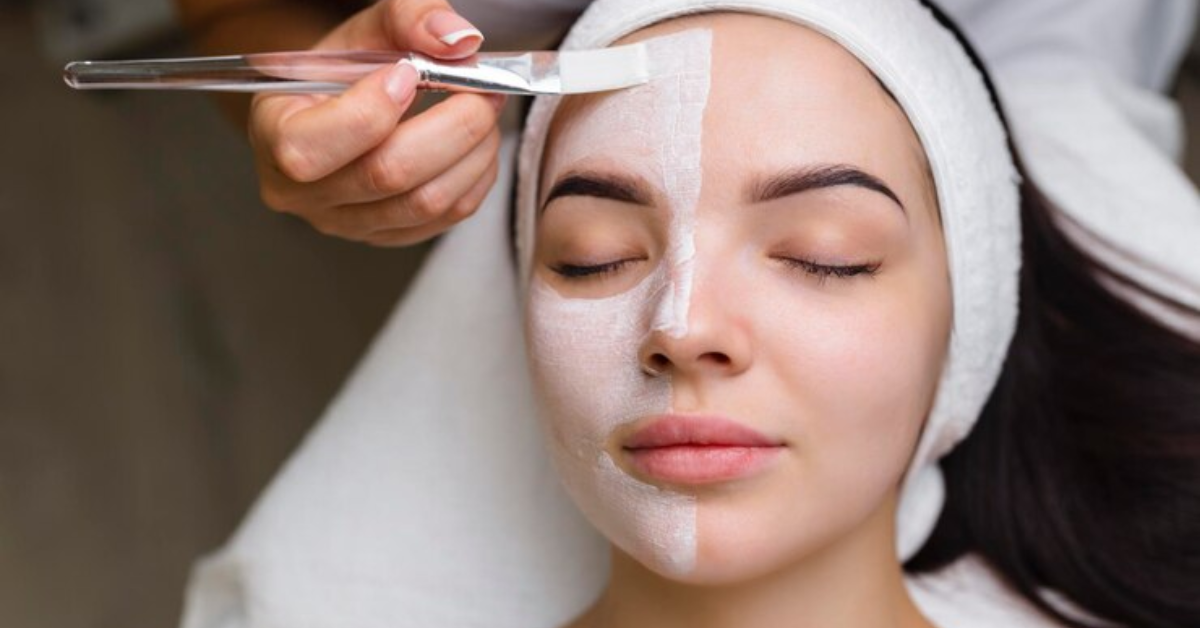Does Laser Hair Removal Prevent Future Hair Growth?
Laser hair removal stands as a modern marvel in the realm of cosmetic procedures, revolutionizing the approach to achieving smooth, hair-free skin. This cutting-edge technique involves the use of concentrated light energy to target and impair hair follicles, ultimately reducing hair growth in the treated areas.
At its core, laser hair removal is a meticulous process designed to selectively damage the hair follicles' pigment, thereby hindering or
delaying future hair regrowth. Through the precise application of light pulses, the melanin present in the hair follicles absorbs the energy, heating and damaging these structures without affecting the surrounding skin. As a result, the follicles' ability to generate new hair becomes compromised, leading to a gradual reduction in hair growth over subsequent sessions.
The promise of reduced hair growth or even long-term hair reduction has positioned laser hair removal as a
sought-after solution for individuals seeking a convenient and semi-permanent hair removal method. However, it's crucial to understand that while this procedure can significantly diminish hair growth, it might not entirely prevent regrowth in all cases, requiring occasional
maintenance sessions to sustain the desired results.
The Hair Growth Cycle: An Overview
In order to comprehend hair growth cycles, it is imperative to recognize the intricate phases through which hair progresses and the diverse factors that affect this biological process.
Explanation of Hair Growth Phases:
Anagen Phase: This marks the active growth stage where hair follicles are actively producing hair. The duration of this phase varies depending on factors such as genetics and body location. On the scalp, this phase can last for several years, contributing to longer hair strands.
Catagen Phase: Transitioning from the anagen phase, hair follicles enter a brief transitional stage where growth ceases. This phase lasts a few weeks and involves the shrinking of follicles and detachment of hair from the blood supply.
Telogen Phase: Known as the resting phase, hair follicles remain dormant for a few months during this stage. Roughly 10-15% of hair is in this phase at any given time. The old hair eventually falls out, making way for the new.
Factors Affecting Hair Growth
Various factors intricately impact hair growth patterns and health. Genetics wield significant influence, dictating the duration of the anagen phase, determining hair texture, color, and growth rate. Hormonal shifts, such as those during puberty, pregnancy, or menopause, affect hair growth cycles, with androgens like testosterone regulating thickness and distribution. Aging inevitably shortens the anagen phase, leading to slower growth and potential thinning or loss.
Nutrition plays a pivotal role; adequate intake of essential vitamins and minerals supports healthy growth, while deficiencies or underlying health conditions can disrupt cycles, causing loss or slowed growth. Environmental elements, from stress to pollutants and specific treatments, also influence growth. Understanding these complexities underscores the variability in individual hair growth and aids in maintaining optimal hair health
Does Laser Hair Removal Stop Future Hair Growth?
Laser hair removal is often sought after for its potential to reduce or impede future hair growth, but understanding its definitive impact requires a closer look at various aspects.
Laser hair removal functions by targeting the pigment within hair follicles, thereby damaging or destroying them. The concentrated light energy emitted by the laser is absorbed by the melanin in the hair, which in turn generates heat, impairing the follicles' ability to produce new hair. Consequently, treated follicles may experience a delay or complete halt in regrowth, leading to a significant reduction in hair density over successive sessions.
Research exploring the
long-term effects of laser hair removal suggests promising outcomes in impeding hair regrowth. Numerous studies have documented substantial hair reduction, with some individuals experiencing prolonged periods of minimal hair growth or even long-term hair loss in treated areas. However, it's essential to note that individual responses can vary due to factors like
hair color, skin type, and hormonal influences.
Addressing Common Misconceptions
There are several misconceptions surrounding laser hair removal's efficacy in completely halting future hair growth. While it can lead to substantial hair reduction, it's crucial to understand that results may not be entirely permanent for everyone. Some individuals might experience hair regrowth over time, albeit finer and lighter than before. Additionally, laser hair removal might not be as effective for individuals with lighter hair colors, as the treatment primarily targets darker pigments.
Moreover, another misconception revolves around the notion that a single session suffices for permanent hair removal. In reality, achieving optimal and long-lasting results usually requires multiple sessions spaced over several weeks or months to target hair follicles in different growth phases.
Realistic expectations are essential when it comes to laser hair removal and future hair growth. While it can yield substantial and long-term hair reduction for many individuals, complete and permanent cessation of hair regrowth might not be universal.
Consulting with a qualified professional and comprehending individual suitability can provide clearer insights into expected outcomes and the potential need for maintenance sessions to sustain desired results.
Factors Influencing Laser Hair Removal Results
The efficacy and success of laser hair removal hinge on various critical factors that significantly influence the treatment's outcomes and overall effectiveness.
1. Skin and Hair Types:
Skin and hair characteristics play a pivotal role in determining the success of laser hair removal. The treatment works most effectively on individuals with a stark contrast between their skin tone and hair color. Dark, coarse hair against light skin tends to yield the best results as the laser targets the melanin in the hair follicles without affecting the surrounding skin.
Conversely, individuals with
darker skin tones or lighter hair shades may experience less optimal outcomes due to the decreased contrast between the hair and skin, potentially necessitating specialized lasers or adjusted settings to achieve effective treatment without causing damage to the skin.
2. Treatment Consistency and Quality:
Consistency and quality of laser hair removal sessions significantly impact the results. Optimal outcomes are often attained through a series of scheduled sessions spaced apart to target hair follicles in various growth stages. Adequate intervals between sessions allow for the targeting of new hair growth, ensuring a comprehensive approach to hair reduction.
Moreover, the quality of the treatment sessions, including the expertise of the practitioner and the type of laser technology used, greatly influences the results. Skilled professionals employing advanced laser systems tailored to individual skin and hair types enhance the likelihood of achieving desirable and lasting results.
3. Professional vs. At-Home Treatments:
Professional laser hair removal conducted by trained practitioners in clinical settings typically yields superior and more consistent results compared to at-home treatments using consumer-grade devices. Clinics often utilize medical-grade lasers with varying wavelengths and adjustable settings, allowing for precise customization based on individual needs. The experience, expertise, and supervision of professionals in clinical settings ensure safer and more effective treatments, minimizing the risk of adverse effects.
In contrast, at-home devices may offer convenience but may lack the power, precision, and safety features of professional-grade lasers. Consequently, at-home treatments might yield less effective results or pose a higher risk of skin irritation or damage if not used correctly.
Understanding these influential factors underscores the importance of tailored treatment approaches and professional guidance to maximize the efficacy and safety of laser hair removal. Consulting with experienced professionals helps determine the most suitable treatment plan based on individual characteristics and ensures optimal and satisfactory results while minimizing potential risks.
Expected Outcomes After Laser Hair Removal
Laser hair removal requires an understanding of the realistic expectations about the outcome and potential scenarios following the procedure.
Temporary vs. Permanent Hair Reduction:
Laser hair removal offers a spectrum of outcomes, ranging from temporary hair reduction to long-term or even permanent hair loss in treated areas. While many individuals experience a
significant reduction in hair growth after completing a series of sessions, complete and permanent cessation of hair regrowth might not be universal. Some may witness a notable decrease in hair density for an extended period, while others might notice regrowth over time.
Possibility of Hair Regrowth Over Time:
Following laser hair removal, it's plausible for some individuals to experience hair regrowth in treated areas. However, the regrown hair often appears finer, lighter, and less noticeable compared to the original hair. Factors such as hormonal changes, genetics, and individual responses to treatment can influence the degree and rate of regrowth. Periodic maintenance sessions might be necessary to manage and address any regrowth that occurs over time.
Managing and Maintaining Results:
Effectively managing and maintaining the results of laser hair removal involves understanding the need for potential touch-up sessions and adhering to post-treatment care instructions. Periodic maintenance sessions, spaced apart based on individual needs, can help sustain the desired reduction in hair growth and manage any regrowth effectively.
Safety and Considerations
Ensuring safety and understanding crucial considerations are pivotal aspects of laser hair removal to minimize risks and optimize the treatment's effectiveness.
While laser hair removal is generally safe, it's essential to be aware of
potential risks and side effects. Temporary side effects might include redness, swelling, or mild discomfort in the treated areas, typically subsiding within a few hours to a couple of days post-treatment. In rare cases, more severe side effects like blistering, changes in skin pigmentation, or scarring can occur, particularly if the treatment isn't administered correctly or inappropriately calibrated for specific skin types.
Prior to undergoing laser hair removal, seeking consultation from a qualified practitioner is crucial. Professional advice helps assess the suitability of the treatment based on individual skin and hair types, medical history, and potential risks. A thorough consultation involves discussing expectations, potential outcomes, and addressing any concerns or queries related to the procedure. Qualified professionals can provide personalized recommendations, ensuring safe and effective treatment plans tailored to individual needs.
Post-Treatment Care and Precautions
Adhering to post-treatment care guidelines is fundamental in mitigating risks and optimizing results. It involves practicing proper skincare routines and precautions, such as avoiding sun exposure and using sunscreen to protect treated areas. Refraining from activities that might irritate the skin, like hot showers, swimming in chlorinated water, or using abrasive skincare products, is advisable for a certain period following treatment.
Moreover, following the practitioner's instructions regarding temporary modifications to skincare routines and avoiding certain hair removal methods, such as plucking or waxing between sessions, aids in preventing adverse effects and optimizing the treatment's efficacy.
Conclusion
Laser hair removal presents an effective method for reducing unwanted hair growth, with many individuals experiencing substantial and prolonged hair reduction. Understanding the nuances of hair growth cycles, treatment variables, and individual factors is crucial in establishing realistic expectations. While the procedure often yields significant results, complete and permanent cessation of hair regrowth might not apply universally. Embracing laser hair removal with realistic expectations and seeking professional guidance can optimize outcomes, ensuring a smoother and more informed journey toward managing future hair growth effectively.
BOOK YOUR FREE SESSION
We will get back to you as soon as possible
Please try again later
-
Locations
- Laser hair removal fort lauderdale
- Laser hair removal Hollywood
- Laser hair removal Pompano Beach
- Laser hair removal Pembroke Pines
- Laser hair removal Dania
- Laser hair removal Coral Springs
- Laser hair removal Margate
- Laser hair removal Coconut Creek
- Laser hair removal Deerfield Beach
- Laser hair removal Hallandale
- Laser Hair Removal Cooper city
- Laser hair removal davie
© 2021 Huggie Beauty Developed by LocalOptimize.co - All Rights Reserved










